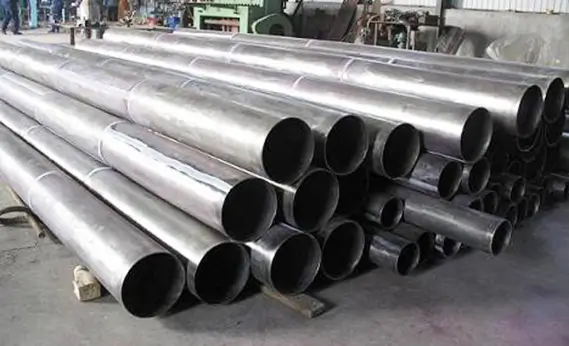In the fastpaced and often unpredictable metals industry, managing inventory efficiently is crucial. Traditional inventory systems, with their large stockpiles and associated costs, are increasingly being challenged by JustinTime (JIT) inventory systems. JIT is a strategy that aims to reduce inventory levels and improve efficiency by receiving goods only as they are needed in the production process. This blog explores why JIT inventory systems are transforming the metals industry and how they can benefit businesses.
Understanding JustinTime (JIT) Inventory Systems
Factually Accurate Insight: JIT inventory systems focus on reducing inventory levels and minimizing waste by aligning inventory procurement with production schedules. This approach helps in maintaining lean operations and reducing holding costs.
Simple Format Explanation: Instead of keeping large quantities of metals in stock, a company using JIT orders materials in smaller, more frequent batches that arrive just when needed. This reduces the need for extensive storage space and lowers the costs associated with holding excess inventory.
Storytelling Element: Imagine a metal service center that used to maintain a large inventory of various metals to avoid stockouts. This practice led to high storage costs and tied up capital in unsold inventory. After transitioning to a JIT system, the center significantly reduced its inventory levels, freeing up valuable warehouse space and lowering operational costs.
Benefits of JIT Inventory Systems in Metals
1. Reduced Inventory Costs
Factually Accurate Insight: One of the most significant advantages of JIT is the reduction in inventory holding costs. By minimizing stock levels, companies can lower costs related to storage, insurance, and obsolescence.
Simple Format Explanation: For instance, a metal manufacturer using JIT no longer needs to maintain large quantities of raw materials, reducing warehousing expenses and freeing up capital for other investments.
2. Increased Cash Flow
Factually Accurate Insight: JIT systems improve cash flow by reducing the amount of capital tied up in inventory. With less money invested in stock, companies can allocate funds to other areas of the business.
Simple Format Explanation: By implementing JIT, a metal distributor can use the capital that was previously tied up in inventory to invest in new technology or expand operations, enhancing overall business growth.
3. Enhanced Production Efficiency
Factually Accurate Insight: JIT promotes a smoother production process by ensuring that materials arrive precisely when needed. This reduces the likelihood of production delays caused by inventory shortages.
Simple Format Explanation: For example, a metal fabricator with a JIT system can streamline its production line, as materials are delivered just in time for processing. This results in fewer disruptions and a more efficient manufacturing process.
4. Improved Customer Satisfaction
Factually Accurate Insight: With JIT, companies can better respond to customer demands by providing timely delivery of products and reducing lead times.
Simple Format Explanation: A metal supplier using JIT can quickly adapt to changes in customer orders and ensure faster delivery times, leading to higher customer satisfaction and loyalty.
Challenges and Considerations
1. Supplier Reliability
Factually Accurate Insight: JIT systems rely heavily on suppliers delivering materials on time. Any delay or disruption in the supply chain can impact production schedules.
Simple Format Explanation: Companies need to establish strong relationships with reliable suppliers and implement contingency plans to address potential disruptions.
2. Demand Forecasting
Factually Accurate Insight: Accurate demand forecasting is critical for JIT to be effective. Poor forecasting can lead to either shortages or excesses.
Simple Format Explanation: Implementing robust forecasting tools and techniques helps ensure that inventory levels align with actual demand, minimizing the risk of stockouts or overstocking.
JustinTime inventory systems offer significant advantages for the metals industry, including reduced inventory costs, improved cash flow, enhanced production efficiency, and better customer satisfaction. By adopting JIT, metal companies can streamline their operations and remain competitive in a dynamic market. However, successful implementation requires careful planning, reliable suppliers, and accurate demand forecasting. Embracing JIT can transform how metal service centers manage their inventory and achieve operational excellence.




